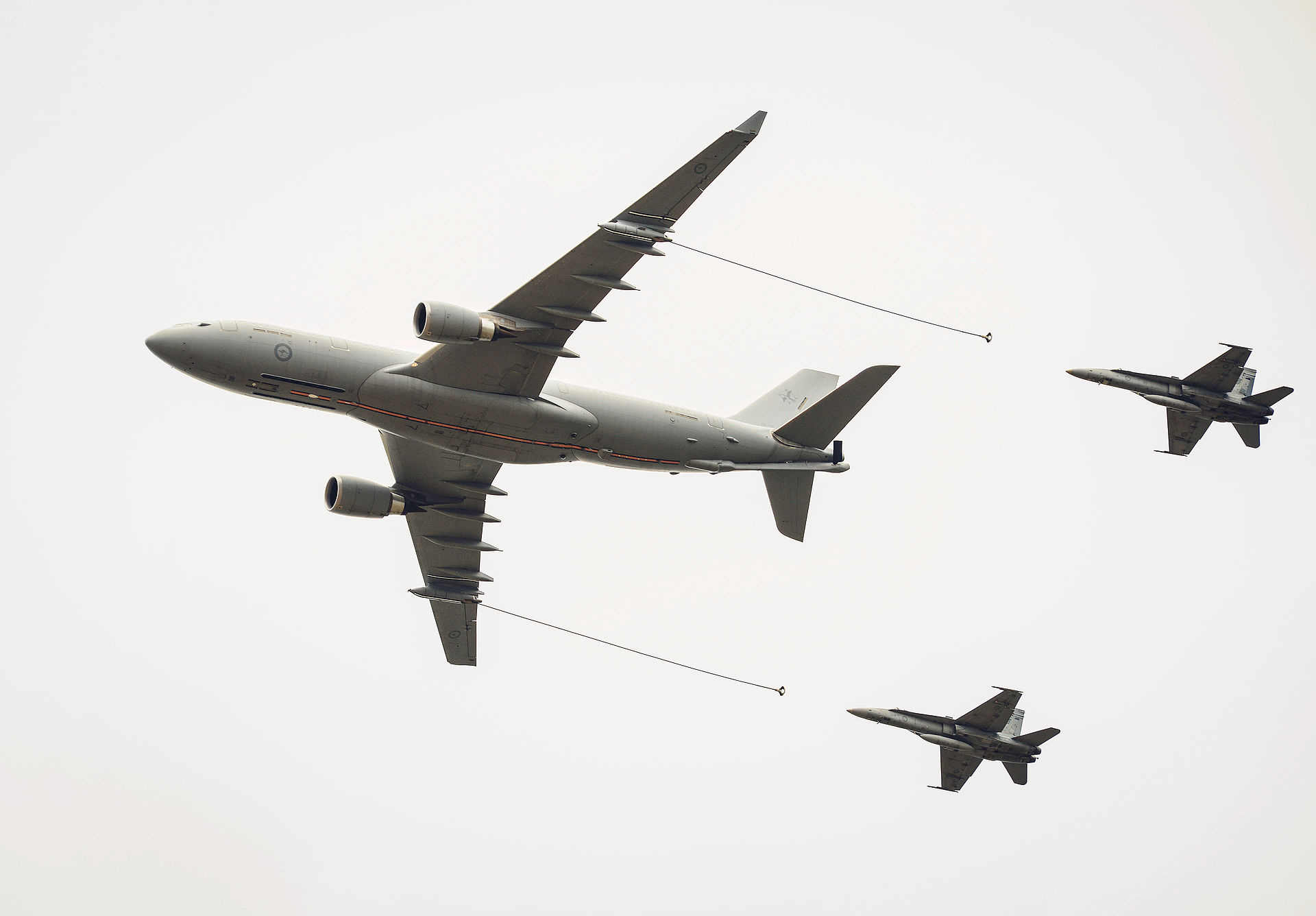Since the A350 is one of the most efficient jets out there, Is it possible that it can be transformed into a fuel tanker for Aerial refuelling?
-
2$\begingroup$ sure you could, limiting factor would be fuel weight and position of the tanks $\endgroup$– ratchet freakCommented Jan 8, 2015 at 19:25
-
$\begingroup$ So we shouldn't be too surprised if some military (or Airbus itself) announced that a tanker based on the A350 is being developed. $\endgroup$– Taher ElhouderiCommented Jan 8, 2015 at 19:29
-
$\begingroup$ Especially with all that range (14,300 km) and its impressive low maintenance costs. It just too appealing for militaries $\endgroup$– Taher ElhouderiCommented Jan 8, 2015 at 19:33
-
$\begingroup$ @TaherElhouderi Now what would the range be if it could refuel... itself! ;-) $\endgroup$– MichaelCommented Jan 9, 2015 at 2:06
-
$\begingroup$ @Michael just take the difference between MTOW and zero fuel and then divide by default fuel capacity then you have the theoretical range of the all fuel A350 $\endgroup$– ratchet freakCommented Jan 9, 2015 at 10:04
2 Answers
Yes, it could be done. There is an A330 already working as fuel tanker.
 Image Source: Wikipedia
Image Source: Wikipedia
Airbus might build a A350 air re-fueler as mentioned here:
Airbus is already offering a tanker version of the A330, and could (potentially) upgrade their proposal with an A350 air-refueler. The A350 would offer a substantial increase in fuel offload from existing tankers, as well as the 767.
-
1$\begingroup$ The A330 was an "easy" conversion in a sense because there are hard-points on the outer wings. The A330 has the same wing as the A340, but with two instead of four engines - hence there was a good location for fueling hose reels. $\endgroup$ Commented Jan 9, 2015 at 5:05
-
1
While payload, range, and efficiency are important for tankers, militaries have reasons for still using so many 707 variants.
Many of the reasons are similar to Why does the US President fly in an obsolete 747-200? Although making an aircraft into a tanker may be less challenging than making it into a SAM aircraft, it is still a large task. The fuel system needs to be modified and significantly extended, and many other components will be upgraded to military standards. This is a large investment for what is a relatively small fleet of aircraft. It has been more economical to upgrade the aircraft rather than select newer models. Smaller fleets of tankers have been converted from existing aircraft, which is cheaper with older designs rather than the latest and greatest.
Also, like the SAM aircraft, tankers do not see nearly as much flight time as commercial aircraft. The KC-135 fleet stood at an average of 17,000 hours in 2004, with a fatigue life of about 36,000 hours. This means that gains in efficiency are less important, and other costs like maintenance and acquisition are more important.
There have only been orders for about 50 A330 MRTT aircraft. Boeing built 8 KC-767 airplanes, and there are only 3 orders for tanker conversions. The US Air Force is ordering 179 of the KC-46 tankers, with possible further export sales. This overall represents a fairly small market.
Another important requirement is service life. The KC-135 aircraft in the US Air Force have been in service for at least 50 years now. The RAF aircraft are conversions and had a long service life, but not as long as the KC-135. The 767 and A330 aircraft currently being introduced as tankers are newer designs, but still with a long and proven service history. The A350 represents a large step in aircraft design, using composites much more extensively than before. While there is certainly a good amount of confidence that these aircraft will have a long service life, militaries may want to wait until the new design concepts have proven themselves before making expensive orders.
-
1$\begingroup$ Is runway length also an issue for A350? $\endgroup$ Commented Aug 3, 2015 at 14:05
